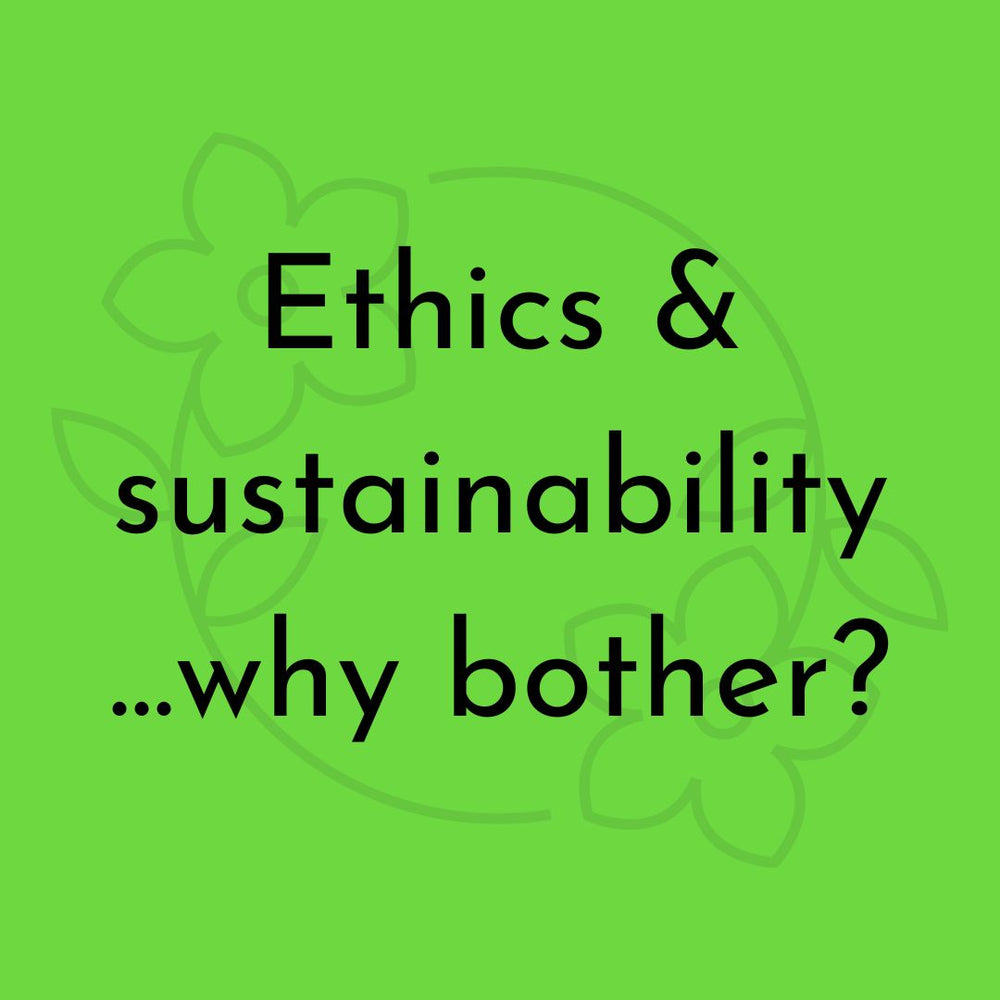We tell you why you should.

As a sustainable and ethical clothing business in the hospitality sector we live and die by the quality, ethics and transparency of our supply chain - why is this important?
As a sustainable and ethical clothing business in the hospitality sector, you're not just selling clothes - you're selling a story. A story of responsible production, fair wages, and environmental consciousness. And in today's world, consumers care more about that story than ever before.
It's no longer enough to offer cool designs at low prices. People want to know where their clothes come from, who made them, and under what conditions. They want to be sure that they're not contributing to exploitation, pollution, or animal cruelty. And they're willing to pay a premium for that peace of mind.
That's why the quality, ethics, and transparency of your supply chain are so important. They're the foundation of your brand's reputation and the reason why your customers choose you over your competitors.
Let's break it down:
Quality: When you say that your clothes are high-quality, you're not just talking about their durability or aesthetics. You're also talking about the quality of the materials and the production process. Are your fabrics sustainable and non-toxic? Are they sourced from ethical suppliers? Is your production process free from harmful chemicals and waste? These are the kinds of questions that your customers are asking, and you need to have good answers.
Ethics: The fashion industry has a reputation for exploitation, particularly in developing countries where labour laws are lax. Your customers want to know that your clothes are not made by children or underpaid workers in sweatshops. They want to know that your suppliers adhere to labour standards and human rights. And they want to know that your business is committed to fair trade practices.
Transparency: Finally, your customers want transparency. They want to be able to trace the journey of their clothes from raw materials to finished products. They want to know the names and locations of your suppliers, as well as their environmental and social practices. They want to be able to ask questions and get honest answers.
When you have a transparent supply chain, you build trust with your customers. You show them that you have nothing to hide and that you're proud of the way you do business.
But building a sustainable and ethical supply chain is not easy. It requires research, investment, and ongoing monitoring. You need to vet your suppliers carefully, conduct regular audits, and invest in training and development programs for your workers. You need to be willing to pay fair prices for sustainable materials and to absorb the costs of responsible production practices. And you need to communicate your values and practices clearly and consistently to your customers.
However, the benefits of a sustainable and ethical supply chain are clear. Not only do you attract customers who care about these issues, but you also create a more resilient and responsible business. You reduce the risk of supply chain disruptions, reputational damage, and legal liability. You also contribute to a more just and sustainable global economy, one that values people, planet, and profit.
If you're a sustainable and ethical clothing business in the hospitality sector, your supply chain is your lifeblood. It's what sets you apart from your competitors and earns you the loyalty of your customers. So invest in it, nurture it, and celebrate it. Your business and the world will be better for it.
As a sustainable and ethical clothing business in the hospitality sector, you're not just selling clothes - you're selling a story. A story of responsible production, fair wages, and environmental consciousness. And in today's world, consumers care more about that story than ever before.
It's no longer enough to offer cool designs at low prices. People want to know where their clothes come from, who made them, and under what conditions. They want to be sure that they're not contributing to exploitation, pollution, or animal cruelty. And they're willing to pay a premium for that peace of mind.
That's why the quality, ethics, and transparency of your supply chain are so important. They're the foundation of your brand's reputation and the reason why your customers choose you over your competitors.
Let's break it down:
Quality: When you say that your clothes are high-quality, you're not just talking about their durability or aesthetics. You're also talking about the quality of the materials and the production process. Are your fabrics sustainable and non-toxic? Are they sourced from ethical suppliers? Is your production process free from harmful chemicals and waste? These are the kinds of questions that your customers are asking, and you need to have good answers.
Ethics: The fashion industry has a reputation for exploitation, particularly in developing countries where labour laws are lax. Your customers want to know that your clothes are not made by children or underpaid workers in sweatshops. They want to know that your suppliers adhere to labour standards and human rights. And they want to know that your business is committed to fair trade practices.
Transparency: Finally, your customers want transparency. They want to be able to trace the journey of their clothes from raw materials to finished products. They want to know the names and locations of your suppliers, as well as their environmental and social practices. They want to be able to ask questions and get honest answers.
When you have a transparent supply chain, you build trust with your customers. You show them that you have nothing to hide and that you're proud of the way you do business.
But building a sustainable and ethical supply chain is not easy. It requires research, investment, and ongoing monitoring. You need to vet your suppliers carefully, conduct regular audits, and invest in training and development programs for your workers. You need to be willing to pay fair prices for sustainable materials and to absorb the costs of responsible production practices. And you need to communicate your values and practices clearly and consistently to your customers.
However, the benefits of a sustainable and ethical supply chain are clear. Not only do you attract customers who care about these issues, but you also create a more resilient and responsible business. You reduce the risk of supply chain disruptions, reputational damage, and legal liability. You also contribute to a more just and sustainable global economy, one that values people, planet, and profit.
If you're a sustainable and ethical clothing business in the hospitality sector, your supply chain is your lifeblood. It's what sets you apart from your competitors and earns you the loyalty of your customers. So invest in it, nurture it, and celebrate it. Your business and the world will be better for it.

